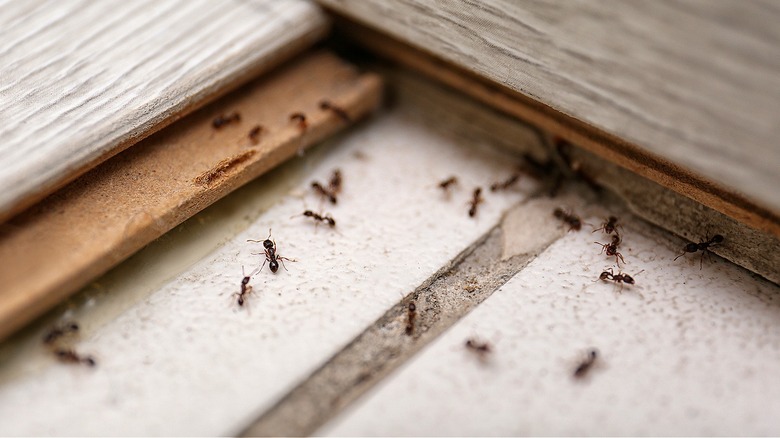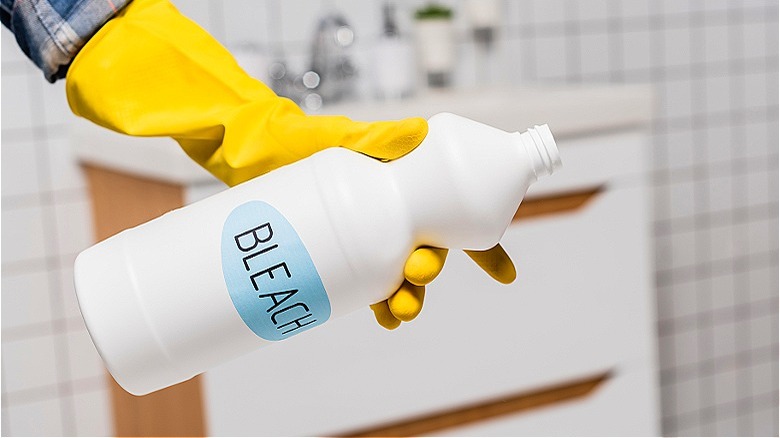Think Twice Before Using This Popular Household Product To Get Rid Of Ants
If ants have taken over your home's nook and crannies and can be spotted marching toward the nearest food source in your kitchen, it might be time to eliminate them permanently. While there are multiple ways to get rid of ants, bleach has surfaced as a potent ant killer. Spraying bleach directly on ants will dissolve their exoskeleton, leading to their untimely death. Moreover, this popular household product will also help you remove the pheromones (or scent trails) left behind by ants, effectively wiping away their map to your home and the sources of food they've discovered. However, bleach isn't the best ant killer out there due to its drawbacks.
For starters, you'll have to spray or pour bleach directly onto the ants to kill them. Not only would this take too much time and effort, but it won't get rid of the colony deeply hidden within your home. Moreover, bleach (even in its diluted form) emits toxic fumes that are harmful to you, your family, and your pets if inhaled.
Reasons you shouldn't use bleach to kill ants
Besides not attacking hidden ant colonies and emitting toxic fumes, you shouldn't use bleach to kill ants simply because it isn't manufactured as a pesticide or a long-term solution to your ant problem. Moreover, you need to be careful while using this household product as undiluted bleach can lead to burns and irritate your lungs and eyes. Further, its potent chemicals will strip your countertops, hardwood flooring, and concrete surfaces of their color and stain. Your colored garments and rugs aren't safe from bleach either. For instance, if you accidentally spill some on your carpet, you'll have to work hard to get the stubborn bleach stains out.
Bleach also isn't environmentally friendly due to it being non-biodegradable. In case the ants you're attacking are near your houseplants or in the garden, accidental splashes of bleach can harm the flora and fauna, too. Additionally, when absorbed by the soil, it'll lead to the death of beneficial bacteria, worms, and other organisms.

